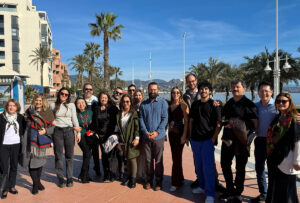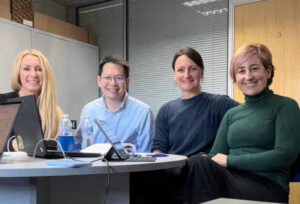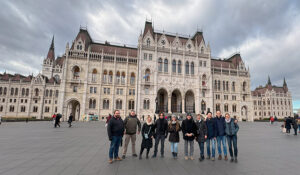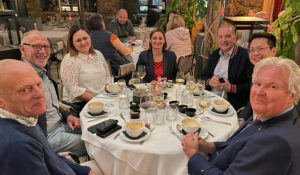Farm labourers and rural workers were absent from 18th century English paintings. This was one of Penny McElwee’s conclusions on completing her PhD. in Cultural Art History with Warnborough College two years ago. The following year her PhD. thesis was published by Cambridge Scholars as ‘The Non-Representation of the Agricultural Labourers in 18th and 19th Century English Paintings’.
More recently she has been working on another title for the same publishers. She writes,
“this time the theme will revolve around – Advertising aimed at Women dating from the late Victorian period through to the 1930s. The proposed title being ‘SCRUB NO MORE,’ which is now before the Publisher’s editorial board for consideration”.
The interview below is from 2015, when Dr McElwee had completed her thesis.
Tell us a bit about what you’ve been researching and how it’s all panned out.
I’ve been researching 18th Century English paintings and part of 19th Century – all English paintings. At that period, they were done in a specific way: they were landscapes, they were merry England, were idyllic countryside, which of course it wasn’t. It was all a cover up for the power of the wealthy. The workforce very rarely appeared in these paintings. As the 18th century drew to a close, you had a few more idealistic paintings of the workforce, but you never had any ugly, nasty paintings of the workforce. They just weren’t recognised. Three percent of the population were the upper classes and all the rest were the poor. The wealthy didn’t want pictures of the workforce on their walls.
How did you find the literature review to search for them?
It’s improved. I think if you’d have decided on this subject 30 or 40 years ago, there was no interest in the social history of art but now it’s becoming a recognised thing that the working class were completely ignored. Now people are more class-conscious and they want to know why. They built the houses, they tilled the fields, they looked after the masters but no recognition.
They were all secondary sources. I couldn’t get primary sources unless I went to England or some of the libraries. I was restricted to online and university libraries. I had to compare and contrast what had been written about the workers and make conclusions as to why they weren’t wanted. You have to think of an English country side with patchwork fields, but that was only after 1760 when parliamentary enclosure came in. The big fields were then enclosed and the countryside was changed forever.
Tell us a bit about what you had to go through to produce this work.
Two and a half years of very enjoyable but sometimes, very hard slog. It’s very rewarding to see what you’ve done. I will never look at an 18th century painting again, ever. My sympathy will always be for the underdog because they were really treated so badly… the Trade Unions didn’t come in until about 1870, so they didn’t have anyone to give them a voice. It was only really after World War 1 that you’d get the classes mixing.
What sort of qualities should a person have in order to start a PhD. and finish it?
It’s very rewarding but you have to be very diligent. You have a mentor – I had an amazing mentor that guided me through bad days. You still have a lot of work to do on your own and it’s left to you to do the work. You really do have to stick at it. It’s not something you can pick up for a few weeks then go away. You have to keep on plugging away at it.
Take a look!






